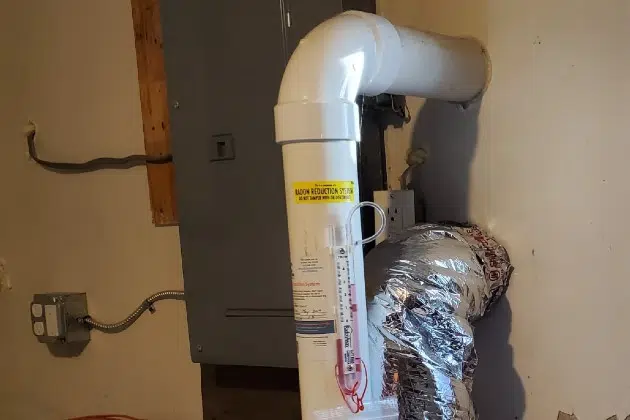(KNSI) – Health officials warn radon is a common and deadly cancer risk in Minnesota homes, and some common misconceptions may cost local residents their lives. During January, Radon Action Month, the Minnesota Department of Health (MDH) is making a special push to urge everyone to test their home for radon.
MDH officials say radon is a colorless, odorless gas that occurs naturally in Minnesota soils and is the leading cause of lung cancer among non-smokers. MDH says radon kills more than 21,000 people across the country a year. MDH Indoor Air Unit Supervisor Dan Tranter says Minnesota has high radon levels compared to the rest of the nation.
“About two in five homes that are tested, test high. So, there’s a good chance that your home is going to test high. This part of the country has sum of the highest radon levels. In Minnesota, about 40% of homes test high and nationally it’s about 7%. So we are considerably higher than the rest of the country.”
Tranter says the high levels are caused by Minnesota’s geology and the movement of glaciers many 1000s of years ago. He says the high levels also have to do with the fact that we keep our homes closed up most of the year with long winters and hot summers.
Tranter says while there are cheap and easy ways to test for radon, many people are unaware of the risks and may not be getting the help they need to be safe.
“Any part of the state, any kind of soil, can have a radon problem. So unfortunately there’s a lot of misunderstandings and misconceptions we’re hoping this month we can help clear some of that up.”
He says radon problems have been found in old or drafty homes, in newly constructed homes, homes without a basement, in neighborhoods where one house has low radon levels, and next door, the levels are high.
Tranter says because every home is different, every home should be tested, and any part of the state can have a radon problem. It’s recommended that homes be tested every five years. MDH has some free test kits available and a list of other places to find a radon test kit. If you find your radon levels are high, you can install a radon mitigation system.
Health professionals recommend testing for radon during real-estate transactions. Sellers must disclose any prior radon testing and provide a two-page publication to buyers under state law. Radon tests should be incorporated into a home inspection.









